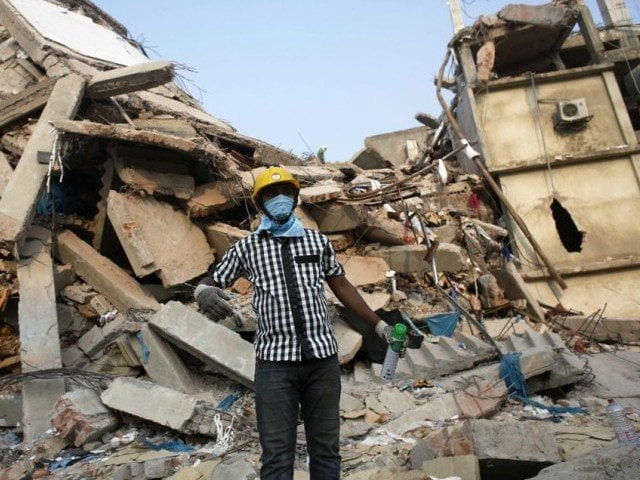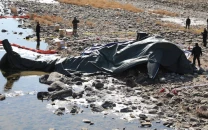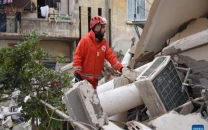Factory closures
We must ensure that manufacturing units are compliant with international standards of health and safety.

The Rana Plaza tragedy highlighted the fact that outsourcing manufacturing by international brands to drive down costs has unforeseen consequences. PHOTO: REUTERS/FILE
The Rana Plaza tragedy highlighted the fact that outsourcing manufacturing by international brands to drive down costs has unforeseen consequences. Countries like Bangladesh, which is heavily reliant on the garment industry as a mainstay of its economy, do not have the same regulatory background or safety culture as the countries and companies that come to its doors seeking to make clothing. Building standards and working conditions differ greatly from those in the West. Attempting, as now, to retroactively bring order to unregulated chaos was always going to be a challenge. Some of the brands such as Walmart and Gap have set up funds to cover workers pay while the work is carried out to make their job environment safer — but many have not.
Pakistan also manufactures cotton goods, and also has a very poor record of workplace safety. Our cotton manufacturing industry has largely collapsed because of the ongoing power crisis, with many factory owners relocating abroad — some of them to Bangladesh. If it is ever to be revived, it would be wise to learn from the Bangladesh experience and ensure that manufacturing units are compliant with international standards of health and safety. The Baldia fire in 2012 killed 289 people, nothing like it must ever happen again.
Published in The Express Tribune, June 6th, 2014.
Like Opinion & Editorial on Facebook, follow @ETOpEd on Twitter to receive all updates on all our daily pieces.



















COMMENTS
Comments are moderated and generally will be posted if they are on-topic and not abusive.
For more information, please see our Comments FAQ